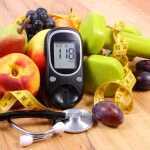
Receiving the diagnosis of type 1 diabetes is like being forced into a marriage. The worst part it is that that it is a lifetime commitment—divorce is out of the question.
You might have heard stories about people who miraculously got rid of diabetes. I’m sorry to break it to you, but diabetes remains an incurable disease at the moment. (I say “at the moment” because researchers are working hard to find a cure. Let’s hope it’s soon!)
 For people newly diagnosed with type 1 diabetes, they might rejoice at the increasingly lower need of insulin injections during the first few months. Physicians call this transition the honeymoon period or remission phase. During this time, the remaining healthy beta cells found in the pancreas are still producing insulin. In some people, the amount of insulin released could be sufficient to rid the patient of insulin. Moreover, the insulin treatment stimulates the islet cells to produce more of this hypoglycemic hormone.
For people newly diagnosed with type 1 diabetes, they might rejoice at the increasingly lower need of insulin injections during the first few months. Physicians call this transition the honeymoon period or remission phase. During this time, the remaining healthy beta cells found in the pancreas are still producing insulin. In some people, the amount of insulin released could be sufficient to rid the patient of insulin. Moreover, the insulin treatment stimulates the islet cells to produce more of this hypoglycemic hormone.
This phenomenon coincides with the period of adaptation, a phase in which the body is trying hard to optimize glycemic control and does somewhat of a good job at the beginning of the diagnosis. We should be thankful for the remission phase; otherwise, we can be quickly propelled to the afterlife from suffering a sudden massive blood sugar dip. However, the honeymoon period is only temporary. With time, people with type 1 diabetes will have no choice but to embark on a lifelong journey of insulin injections.
 Research suggests that patients not to let go of their insulin therapy during the Honeymoon period. Instead, they should continue to inject their body with insulin. By doing so, scientists believe that it can prolong the life expectancy of the remaining healthy beta cells. With that said, patients are urged to discuss with their family physician about the treatment plan during this period to avoid hypoglycemia.
Research suggests that patients not to let go of their insulin therapy during the Honeymoon period. Instead, they should continue to inject their body with insulin. By doing so, scientists believe that it can prolong the life expectancy of the remaining healthy beta cells. With that said, patients are urged to discuss with their family physician about the treatment plan during this period to avoid hypoglycemia.
